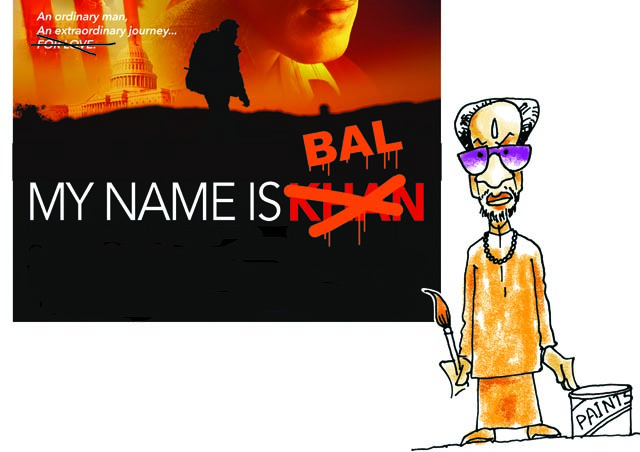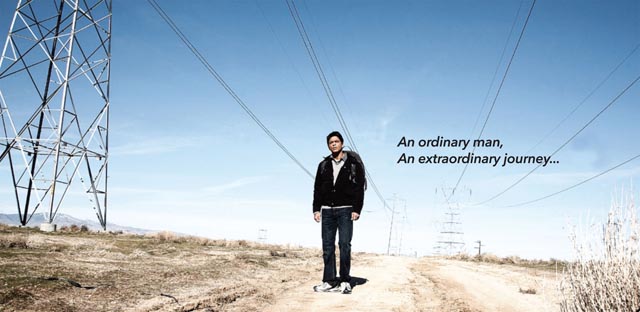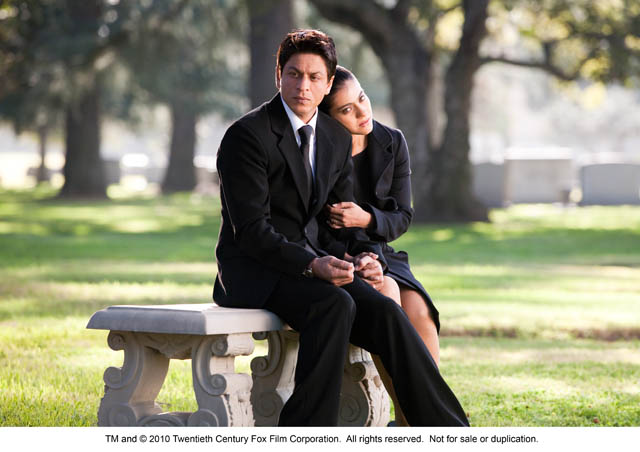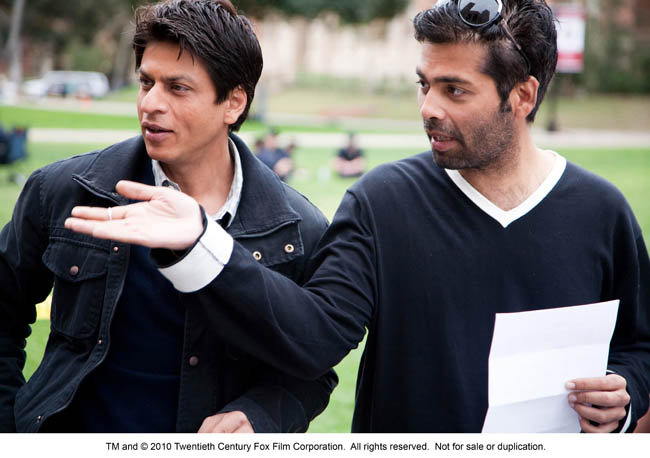
For all those who’ve been following the real life drama of the release of ‘My Name is Khan’ it will be a relief to know that there’s a happy ending to this blockbuster. After more cliffhangers than the Himalayas, the film finally got to open in theaters across Mumbai and was seen by thousands of people. ‘My Name is Khan’ is an intriguing example of how sometimes reel and real life intersect in this major metropolis.
A movie about racial profiling made by a Muslim man, albeit a Bollywood superhero, itself became a vehicle for racial profiling by the Shiv Sena which sent its army of believers out to threaten and ransack. Well, the people of Mumbai came through, overwhelmingly showing that no one group has the monopoly to speak for the millions in this big, cosmopolitan city.
Indeed, Mumbai’s strength is that it is a tower of Babble, an ocean of so many different voices, so many different people living different lives yet coming together when common values and beliefs are threatened.
It is ironic that a movie which is about love and peace has caused such a threat of violence and hatred in Mumbai, an example of real life superseding reel life. But with the happy ending of the real life drama taken care of, one comes to the actual movie.
One has to commend Shah Rukh Khan who fearlessly stood up to Bal Thackeray and the Sena in spite of having crores riding on the outcome. He certainly put his money where his mouth is.
How good is ‘My Name is Khan’?
The buzz is certainly there – in the US, it generated the highest theater average of any film in the Top 20 over the weekend, according to Gitesh Pandya of Boxofficeguru.com. ‘My Name is Khan’ broke the record for the largest opening weekend ever for a Hindi film in North America grossing an estimated $1.86 million its first weekend (Febr 12-14). The previous record has also been held by another Shah Rukh Khan starrer which grossed $1.76 million on the Diwali weekend in 2007.
(Update: On February 28, MY NAME IS KHAN set a new all-time career record for Shah Rukh Khan becoming the actor’s top-grossing film in North America with total sales of $3,635,000 after 17 days of release. The film also became the highest grossing film ever for director Karan Johar, beating the $3,275,444 of 2006’s Kabhi Alvida Naa Kehna which starred Shah Rukh Khan, Amitabh Bachchan, Rani Mukherjee, Preity Zinta, and Abhishek Bachchan.)
‘My Name is Khan’ is definitely worth a visit, if not for anything else, then for Shah Rukh’s performance. As Rizvan Khan, a man suffering from Asperger’s Syndrome, a form of autism, he delivers a performance that is probably the most nuanced of his career. In no way can you connect him with the confident superhero with the six pack abs. He is vulnerable and a little lost, and you ache for his powerlessness. The famous chemistry between Kajol and Shah Rukh is also intact so that a love relationship between two such opposites becomes totally believable.

The evocative music of Shankar-Eshan-Loy which is woven into the tapestry of the script is a star in its own right, giving the film its mood, its feel. In fact, as a Bollywood film, the movie has all the ingredients – popular stars, a dramatic story, beautiful cinematography and super locations – yet somehow you leave the theater without full satisfaction, the high you were expecting.
I guess my expectations were too high, what with all the hype and the drama built up around the movie, giving ‘My Name is Khan’ the added burden of proving something rather than just being a vehicle for entertainment. Karan Johar, the king of romantic movies, has mentioned in interviews that for this film he stepped outside his comfort zone and one has to commend him for taking the risk. He’s tackled difficult issues in this film and one can look forward to more complex themes from him in the future.

The first half of the movie works very well and has an authentic feel ( the young actor who plays the child Rizvan is superb) It is the second half which is a bit convoluted with lots of different threads overpowering the script. And in the grand finale when Rizvan finally gets to meet President Obama – the illusion of real life is broken when they show an actor playing Obama. The president’s face is far too famous to have any actor play him. I think it would have been more powerful if they had used clips of the real Obama and then showed the president’s back and the actors’ faces.
Still, ‘My Name is Khan’ is a dedicated effort and does go deeper than many Bollywood movies, and if it can change some minds about racial profiling, so much the better. At the very least, you can sit back and enjoy the Kajol-Shah Rukh chemistry, the great locations and the beautiful music – and of course, Shah Rukh’s performance which definitely touches the heart. He is there in practically every frame and makes you actually believe in the life of a man called Khan who is not a terrorist.
In his production notes, Shah Rukh wrote, “I pray to Allah that what we say through this narrative makes emotional sense to all. And, in our own way, makes us feel we helped in the steps towards sanity, normalcy, and simplicity that this world needs so much today. As Rizvan Khan would say: ‘It’s fixed and working now.'”


1 Comment
Lavina is right. “My Name is Khan” goes deeper than most Bollywood movies -the central theme does provoke inquiry about prejudice or stereotyping at various levels.
Kajol’s instinctive empathy with the brilliantly portrayed role of Rizvan Khan, a man with Asperger’s Syndrome played by Shah Rukh Khan, makes us appreciate at least briefly the plight of those different from the rest of us. The many overt facets of racial profiling post 9/11 especially targeting Muslims continue to stifle a democratic or a civilized society. But the film’s nuances about the many covert facets of prejudice surface in a compelling manner when the young video journalist decides to persist with the “Khan” story by unveiling the discriminatory stance that his colleague and the famous broadcast journalist Bobby Ahuja initially exhibit. It is this collective covert herd mentality that robs us of our integrity and our moral compass and allows extreme fundamentalism of any sort to gain momentum. Despite the overlaying of multiple and multicultural themes of bias and discriminatory postures that we all succumb to from time to time, the film has a good message and one that has been well told.
Kudos to Karan, King Khan, the vibrant Kajol and team for underscoring the message that “we all are ultimately one.”